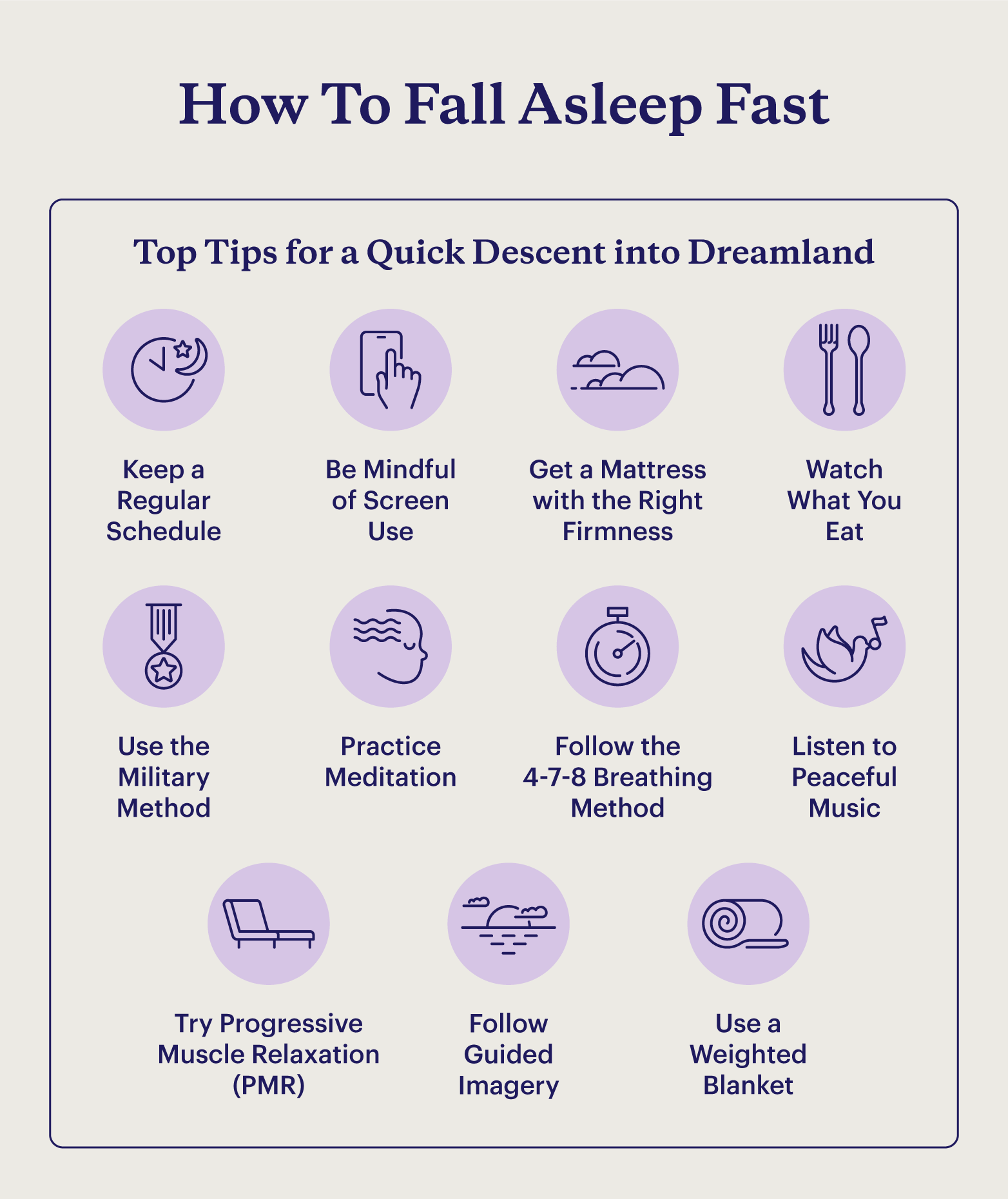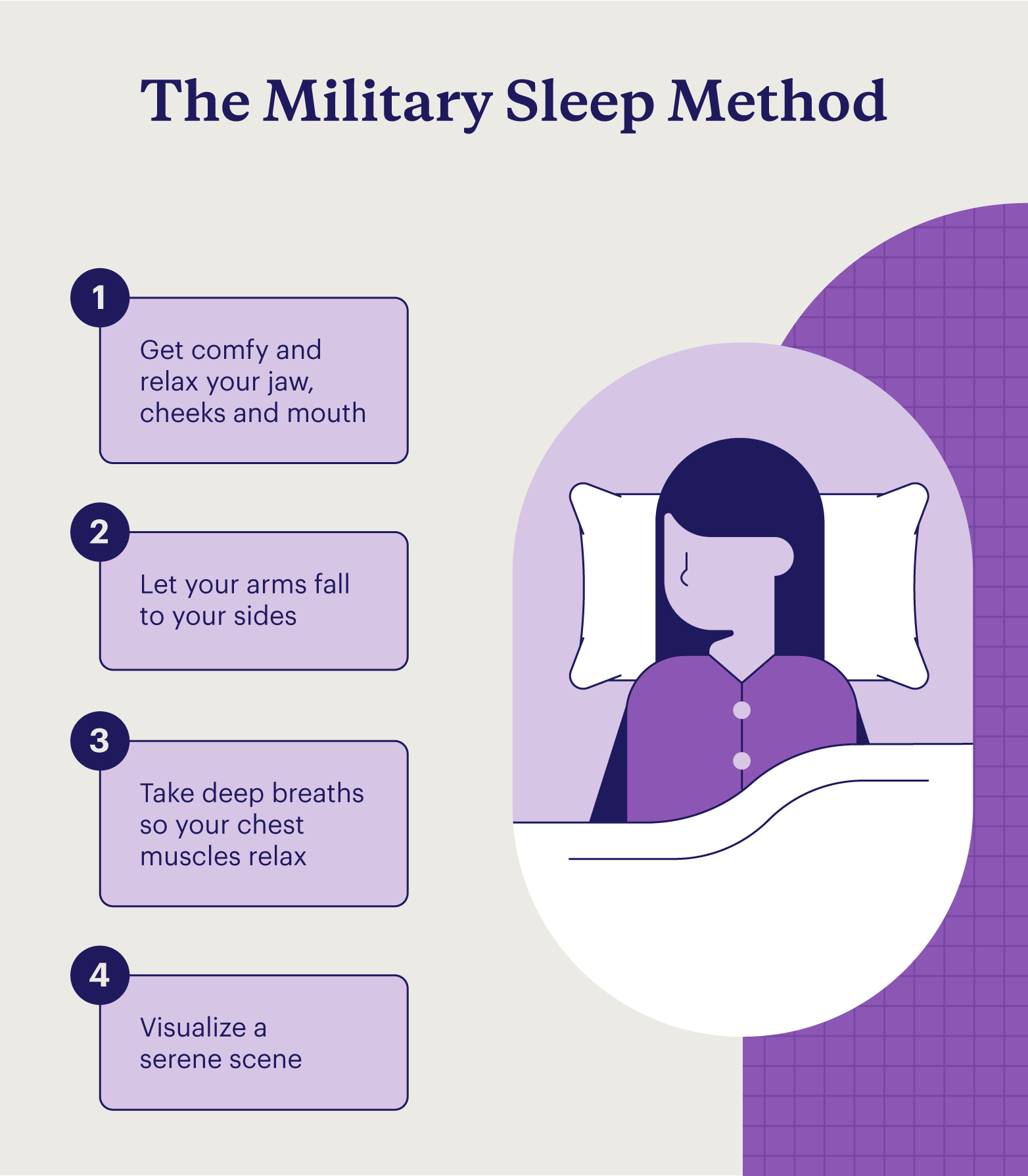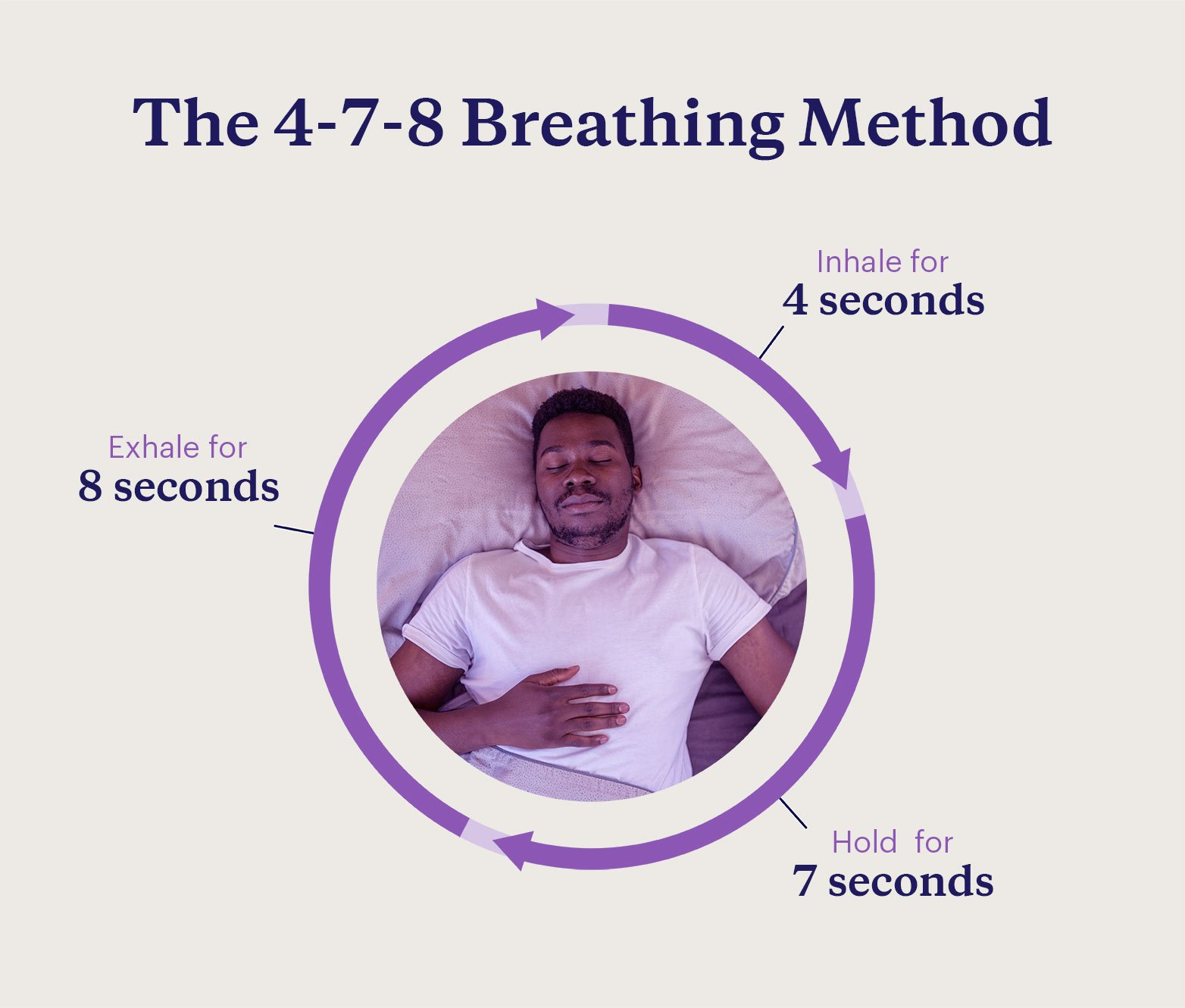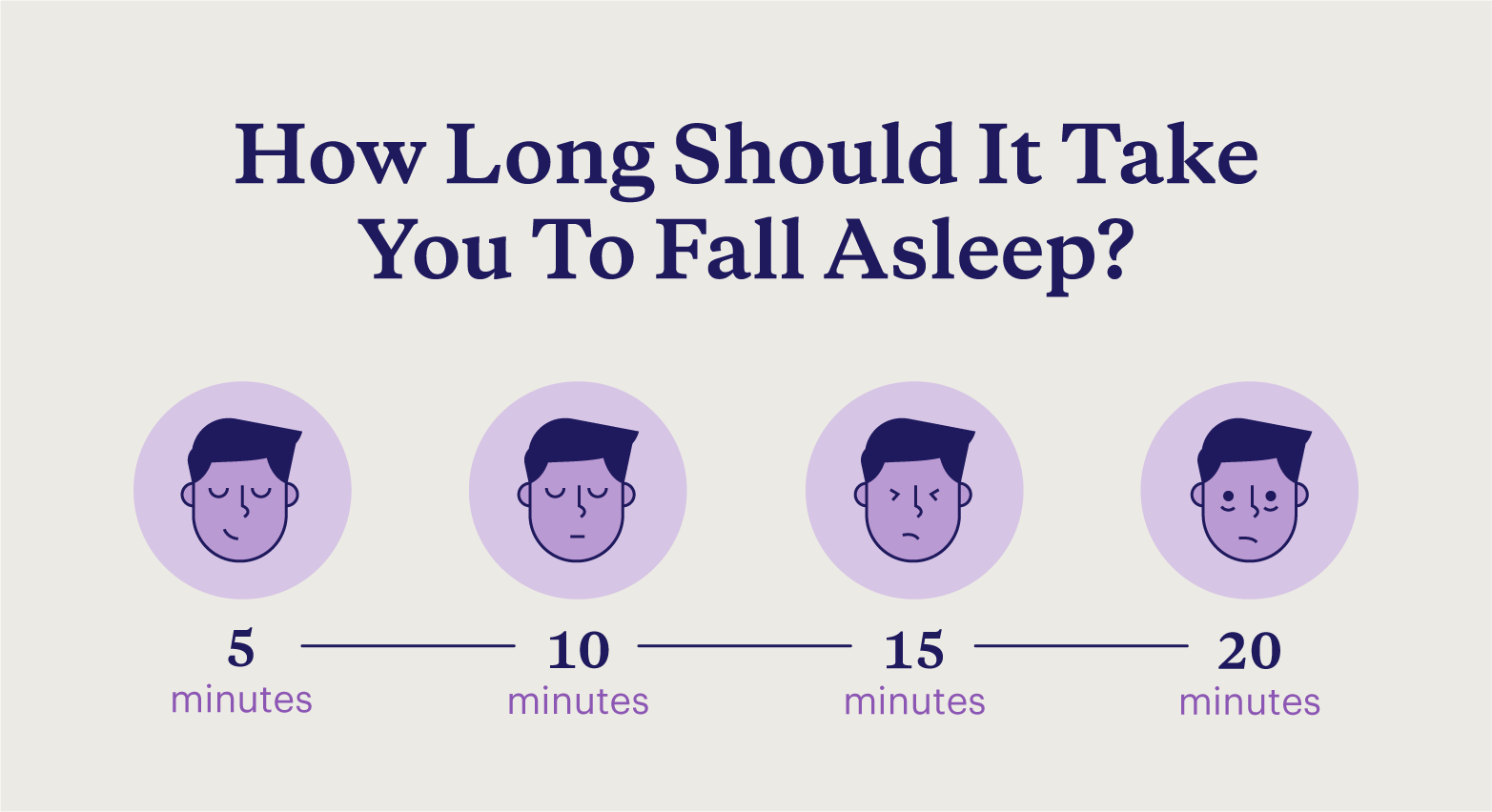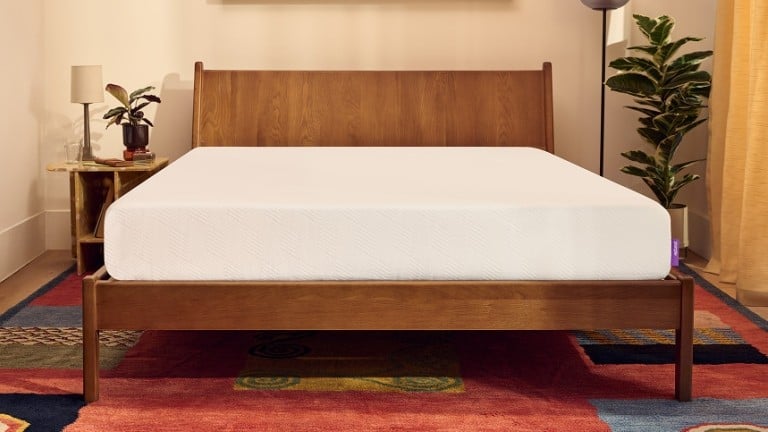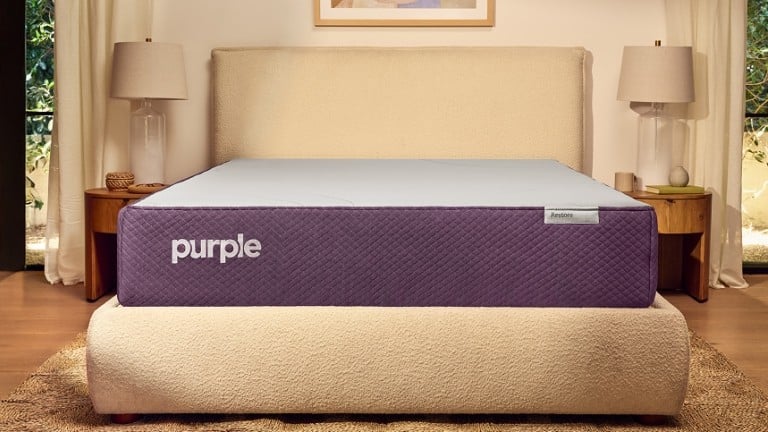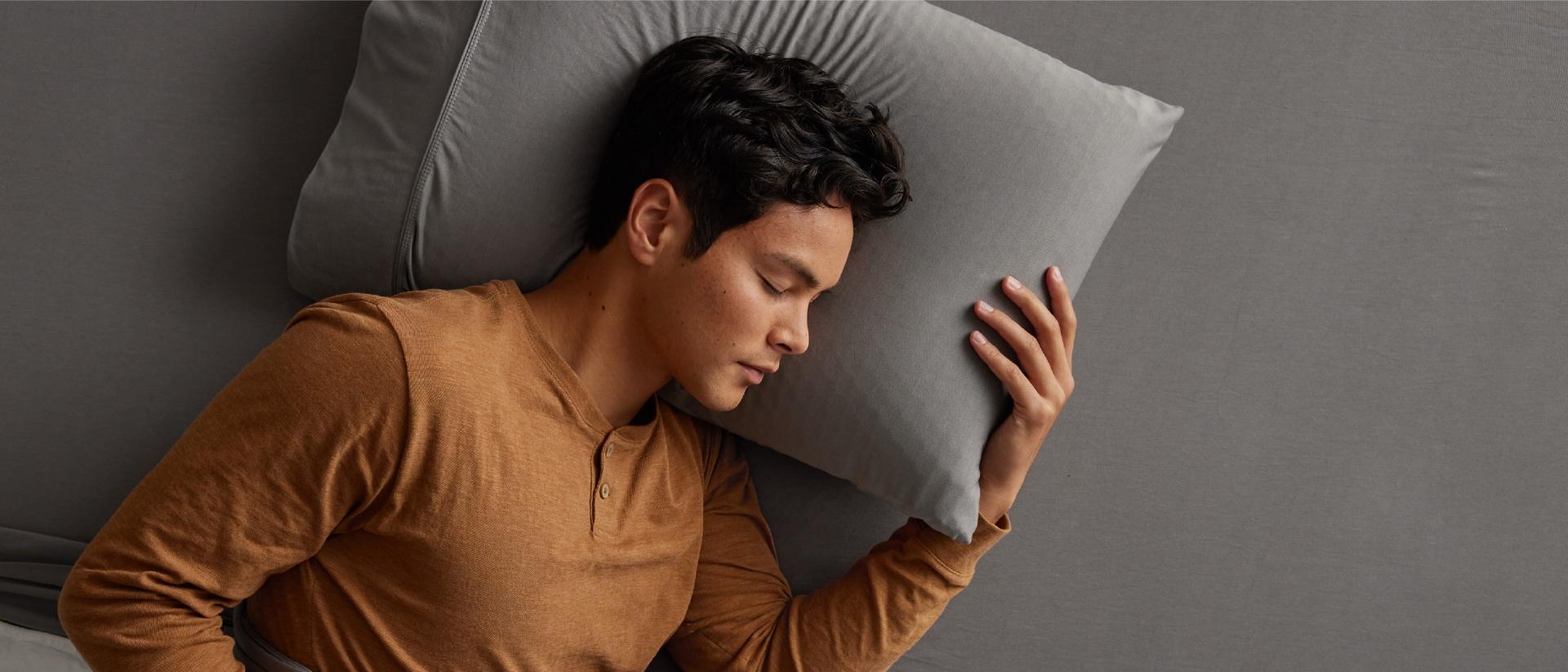
How To Fall Asleep Fast: 25 Expert Tips for Sleeping
Wondering how to fall asleep fast? You're not alone. Many find themselves staring at the ceiling, longing for that restful embrace of sleep. Beyond mere annoyance, difficulty falling asleep on a regular basis can affect our overall well-being and, yes, even that zest for life's most enjoyable moments.
But here’s the silver lining: beyond purchasing the right mattress to suit your unique preferences, there are strategies that may help shorten the time it takes to fall asleep. Tapping into scientific insights and everyday wisdom, we've compiled practical changes and expert tips that can prime you for quicker shut-eye.
A good bedtime routine and some tried-and-true relaxation techniques can help prepare your body and mind for rest. Dive in as we unpack the nuances to help you fall asleep faster and get a better night’s sleep.
As always, if sleep difficulties persist, please consult a healthcare professional.
1. Keep a Regular Schedule
Ever felt like your internal clock has missed a beat or two? Your body thrives on consistency, especially regarding sleep: some research suggests consistency may be more important than sleep duration for overall health.1 Think of your circadian rhythms as a series of clocks that are meticulously tuned to rise with the sun and dim with the moon. When you veer from a steady sleep schedule, it can leave you feeling foggy for the rest of the day.
By heading to bed at the same night every night and waking up at the same time every morning, you help anchor this internal clock. The result? Falling asleep becomes more consistent over time, and mornings feel a bit easier to manage.
Not sure when you should go to bed or wake up? Use our sleep calculator to find out how much sleep is recommended for your age group and what your ideal sleep schedule might look like. Trust us, your body and mind will thank you for it.
2. Be Mindful of How You’re Using Screens
It’s tempting to blame screens as the main culprit for poor sleep, but the science tells a more complicated story. Research shows that while blue light can suppress melatonin, its impact on sleep onset is often small — usually just a few minutes difference in controlled lab settings.1 Similarly, suspenseful shows or video games may raise stress and heart rate before bed, but most studies still find minimal differences in how long it takes people to fall asleep.
As Dr. Vanessa Hill, a sleep science and educator, puts it on her Substack: “Both screen and content type don’t really matter that much… What does matter is creating a distraction-free environment for sleep: no texts, notifications, and anything else that will suck your brain back into your screen after you’ve gotten into bed.”2
So, instead of focusing only on blue light filters or avoiding a particular genre of show, it may be more effective to minimize disruptions and try to use screens in ways that let you disengage easily before sleep.
3. Get a Mattress With the Right Support
A mattress is a haven for your body after a long day. This means that the right firmness and support isn’t a luxury — it’s a necessity. A supportive mattress can help maintain spinal alignment and may reduce the likelihood of waking with stiffness or discomfort.
For side sleepers, softer mattresses can help relieve pressure points. Meanwhile, those who find comfort lying on their back might lean towards a medium-firm mattress, capturing that elusive equilibrium between snug and support.
Shop our collections specially designed for a myriad of sleep positions, preferences, and hurdles.
4. Watch What You Eat
The old adage “you are what you eat” holds weight when it comes to the relationship between food and sleep. Dietary choices influence digestion, metabolism, and even sleep onset. Eating too close to bedtime, or choosing the wrong foods, can make it harder to fall or stay asleep.
Here are a few foodstuffs to keep an eye out for:
- Rich or spicy foods: These may trigger heartburn or acid reflux, disrupting sleep when all you crave is serenity.
- Coffee or tea: Your favorite go-to pick-me-up could keep you awake, even if you no longer feel the buzz. Try bidding adieu to caffeine around nine hours before you tuck in.3
- Alcohol and nicotine: Even if they may seem relaxing, both are associated with more fragmented sleep and poorer overall sleep quality.
Hungry for more insights on what to chow down on (or avoid) for a blissful night's sleep? Read our article on foods to help you sleep better.
5. Use the Military Method
Sometimes, the most unexpected solutions come from necessity. Soldiers, often facing erratic schedules and less-than-ideal sleeping conditions, have developed an effective sleep technique over the years, aptly named the "military method." It may help some people fall asleep more quickly, even in challenging environments, though evidence is largely anecdotal.
Ready to give it a whirl?
- Get comfy and focus on feeling every tension melt away from your jawline, cheeks, and mouth.
- Let your arms gently fall to your sides, starting from your shoulders.
- Start taking deep breaths so your chest muscles relax.
- Visualize a serene scene, such as a cozy fire or a private beach. If stressful thoughts creep in, acknowledge them and gently escort them out, returning to your tranquil scene. Not one for visualization? No worries. A simple repetitive phrase, like "Time to rest," can be just as effective.
For many, the military method has become a steadfast companion in their journey toward a good night’s sleep.
6. Practice Meditation
Meditation serves as an anchor for the mind, grounding you in the present and helping to calm racing thoughts that often keep us awake. It's not about emptying the mind but rather observing it. By doing so, we can find peace in the midst of the storm.
Mindfulness meditation, in particular, has shown promise for those who often find themselves tangled in webs of anxiety or stress. By focusing on our breath or the rise and fall of our chest, we create a buffer between ourselves and the overwhelming thoughts. This gentle act of focusing and refocusing does wonders for the brain. In fact, research suggests that these meditative moments not only pacify our restless minds but pave the way for quicker transitions to dreamland.8
7. Follow the 4-7-8 Breathing Method
In a world that's often go, go, go, our minds race faster than we'd like, especially when it's time to wind down. But what if life had a slow-mo button? Enter the 4-7-8 breathing method, a rhythm of inhales and exhales that's like a lullaby for your overworked mind.
Here’s the breakdown:
- Inhale: With your mouth gently closed, take a deep, silent breath in through your nose, counting to four as you do.
- Hold: Keep that breath with you, letting it fill every nook and cranny of your lungs as you count to seven.
- Exhale: Now, part your lips slightly and release that breath slowly, making a whooshing sound as you count to eight.
By following this pattern, you're doing more than just breathing — you may be sending a signal to your nervous system to take a break, calm down, and prepare for rest – which can help reduce stress or anxiety before bedtime.
8. Try Progressive Muscle Relaxation (PMR)
The body and mind are intrinsically linked. Sometimes, the key to soothing our restless thoughts lies in relaxing our tensed muscles. Progressive muscle relaxation (PMR) is a method that capitalizes on this very connection, allowing you to take an active role in melting away the day's stresses and paving a smoother path to sleep.9
PMR is like a gentle guided tour through your body, where you methodically visit and relax each muscle group.
Here's how:
- Lie down in a comfortable position and close your eyes. Take some deep, grounding breaths.
- Tense your facial muscles, holding onto that tension for about 10 seconds. Then, release and feel the rush of relaxation flood in. Follow this with a few calming breaths.
- Move to your shoulders. Tense them for a brief 10-second spell, then let go, inviting relaxation. Breathe deeply and steadily.
- Continue this rhythmic dance of tension and release, gradually descending from your torso to your legs and, finally, your feet. Remember, this is about relaxation, so if any area feels sore or uncomfortable, feel free to skip it.
For many, PMR is a treasured tool in their sleep toolkit, an intimate ritual that signals to the body, "It's time to wind down."
9. Listen to Peaceful Music
There's a certain kind of magic in music that weaves an atmosphere of tranquility, enveloping you in its soothing embrace. For many, the gentle hum of calming tunes acts as a lullaby, nudging them into the world of dreams, away from the buzz of the daily grind.
Noise can easily intrude on our sleep sanctuary, whether it’s a partner’s sneeze or that night-owl neighbor upstairs. Introducing some peaceful music into your bedtime routine can create a buffer to drown out those pesky, disruptive sounds. Dr. Vanessa Hill describes her experience: “I need to quiet my mind to sleep, so I listen to river sounds every night. I find them really peaceful and it helps turn down the volume on my thoughts as I drift off.”2
Of course, everyone's sensory preferences vary. If melodies become more of a midnight dance party than a sleepy serenade, white noise might be up your alley. It offers a consistent sound palette, creating an audio blanket that's just perfect for sleep. So, whether it's the strumming of a guitar, the pitter-patter of rain, or the steady hum of a fan, find what sleep sounds resonate with your inner night owl and let it guide you to dreamland.
10. Follow Guided Imagery
Our minds, so often cluttered with the hustle and bustle of daily life, seek solace in places of tranquility and calm. The age-old practice of guided imagery provides a mental escape hatch to these serene sanctuaries without ever needing to pack a bag or book a ticket.
Picture this: A sun-dappled forest clearing, birds serenading from treetops, the gentle sway of leaves responding to a whispering breeze, the distant murmur of a babbling brook. Or maybe: a secluded beach, where the ebb and flow of waves paint patterns on the sand, and a soft, salty breeze carries the scent of the vast ocean.
By guiding your thoughts towards these peaceful vistas and away from the day’s tension, you anchor yourself in the present, grounding anxieties and fostering relaxation.
11. Use a Weighted Blanket
IImagine a blanket that doesn't just keep you warm but also gently cocoons you, providing a calming sense of pressure that may help some people relax before sleep. That's a weighted blanket.
Harnessing the power of deep touch pressure, weighted blankets are designed to be roughly 10% of your body weight, creating a gentle yet persistent embrace. They can calm the restless mind and comfort you to sleep.
Weighted blankets aren't just another bedtime accessory — for many, they can be an entire self-care experience.
More Sleep Methods
In our quest for a good night's sleep, we often find ourselves on a winding road of remedies, routines, and rituals.
We've covered a handful of tactics already, but here's a little more wisdom for your wellness journey:
Do your bedtime routines early: Wash your face and brush your teeth well before bed to avoid waking yourself up with a cold splash.
Dim the lights: Low house lights in the hours before bedtime can help with the natural production of melatonin, a hormone that helps you feel sleepy.
Exercise during the day: Wearing yourself out during the day can help you have a restful sleep at night.
Avoid checking the clock: Don’t go down the clock-watching rabbit hole. Ignorance is bedtime bliss.
Use reverse psychology: It’s playful trickery. By resisting sleep, you just might invite it.
Reduce stress factors in your life: A tranquil mind is a rested one. By sidestepping daily stressors, you pave a smoother path to slumber.
Read a book: Trade blue light for a book light. Pages turn thoughts into dreams.
Get up and take a short walk: Reset and breathe. A change of scenery often brings clarity, setting the stage for sleep.
Avoid working in the bedroom: By keeping work out of the bedroom, you signal to the brain that this space is solely for rest.
Take a warm bath or shower: Warm water soothes muscles, priming the body for relaxation.
Lower your bedroom temperature: Lower temperatures mimic the body's natural sleep mode, cueing it to wind down.
Try light yoga or stretching: Yoga for sleep is like sending a goodnight text to your muscles, ensuring they’re as ready for rest as your mind is.
Put blackout curtains over your windows: Seal out the world and let your dreamscape unfold.
Try essential oils with calming scents: Lavender or eucalyptus may help some people relax before bed.
Treat sleep like the profound ritual it is. It's more than closing your eyes; it's opening the door to rejuvenation.
Choose the Right Mattress
You've explored routines, habits, and environments, but there's one piece of the puzzle that often gets overlooked: the foundation of your sleep — your mattress.
A great day starts the night before, and having a mattress tailored to your needs is like having a trusted companion by your side, supporting you through each night and helping you wake revitalized for the day ahead.
As you ponder how to fall asleep more quickly, consider the surface that cradles your dreams. After all, it’s the silent foundation that holds the potential to elevate every other effort you make.
Ready for a healthier sleep routine? Start by selecting the perfect mattress.
FAQ
How Long Should It Take You To Fall Asleep?
On average, it takes adults around 10-20 minutes to fall asleep.4 The time that it takes for you to fall asleep is known as sleep latency. Note that this period doesn’t include pre-bedtime things like brushing your teeth, showering, or even winding down with a book. Rather, this period starts from the time you lay your head on your pillow and try to fall asleep.
If you regularly take more than 20 minutes to go to sleep, this may indicate a risk of insomnia or another sleep disorder. There are different factors that may be delaying your sleep latency and affecting your sleep-wake cycles, such as your diet, level of physical activity, or stress levels. If you experience ongoing sleep difficulties, consult a healthcare provider.
What Does It Mean if You Can’t Fall Asleep Fast?
Research shows that adults require 7-9 hours of sleep each night to function optimally.10 It's not only about the number of hours spent sleeping, but the quality of sleep achieved within those hours. This means spending sufficient time in deep and REM sleep (which comprise core sleep) during the night.
Insufficient sleep has been shown by many studies to negatively impact physical and mental health, increasing your risk of stroke, heart attack, and diabetes.5,6,7
Why Can’t I Sleep at Night?
First and foremost, stress and anxiety are common culprits. When our minds are in overdrive, the relaxation needed for sleep becomes a challenge. Additionally, lifestyle factors like caffeine consumption, screen time before bed, or an irregular sleep schedule can throw off our internal body clock. It's vital to recognize and adjust these factors — nurturing both our minds and habits — to pave the way for peaceful nights ahead.
How Can I Sleep Faster With ADHD?
Navigating the path to restful sleep with ADHD can feel like a maze without a map. People with ADHD often have a tendency toward restlessness, racing thoughts, or overstimulation, which can make winding down difficult. Strategies that may help include:
- Create a consistent sleep schedule. By going to bed and waking up at the same time daily, you help regulate your body's internal clock.
- Minimizing stimulants like caffeine and screen exposure in the evenings can make a difference.
- Establish a calming pre-sleep routine. This might include activities such as reading, light stretching, or listening to soothing music.
By creating an environment and consistent routine that caters to relaxation, they may help reduce sleep latency and improve overall sleep quality.
More to Explore
Level-up your sleep routine with our most-loved products.


